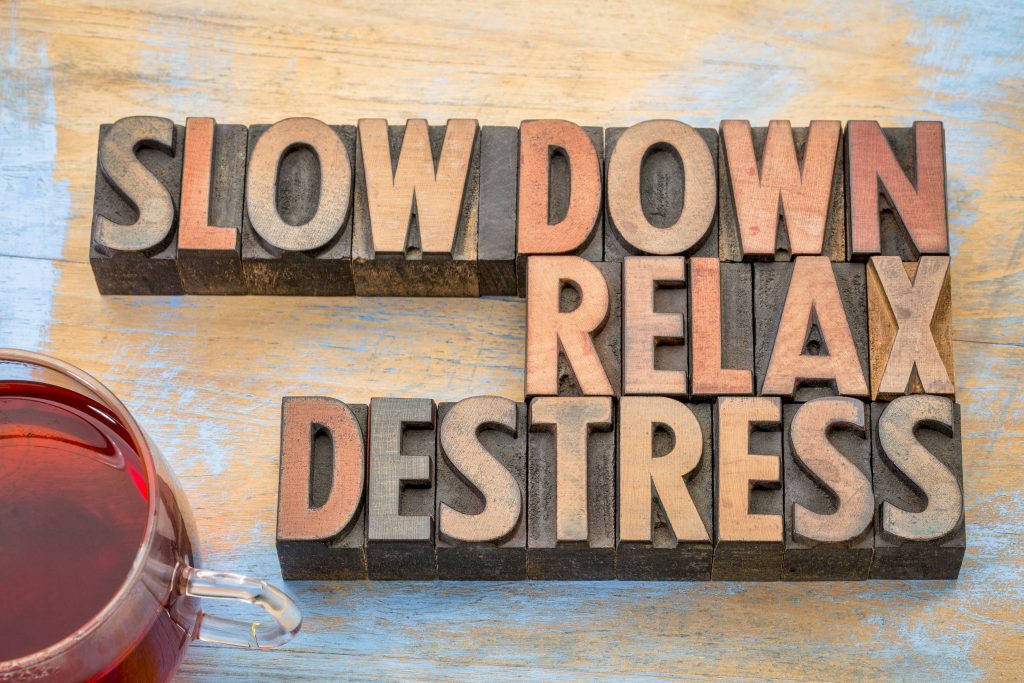Anxiety, tension, stress, stage fright are all negative aspects and keep us mentally unhealthy and come in various guises and intensity.
What is stress?
We stress when something out of our control or comfort zone is happening or looming. Anxiety sets in and our bodies, muscles and voices become tense and do not work efficiently or effectively. The extreme, stage fright and panic attacks, which hit children, teachers, public speakers, singers and even actors, has a very detrimental effect on our body, mind, self-esteem and self-confidence. When we are not confident, we tend to be overly self-critical and therefore prone to additional stress and anxiety. The stress hormone, cortisol, is public enemy number one because it interferes with learning and memory.
Cortisol is released in response to fear, anxiety and stress by the adrenal gland (situated on top of our kidneys, and which produces adrenaline / epinephrine).
Cortisol is part of our flight or fight mechanism.
There are two types of stress:
EUSTRESS (good stress)
DISTRESS (bad stress)
Once the body’s alarm system releases cortisol, our bodies get ready for action, which needs to end / resolve physically in either flight or fight. If this doesn’t resolve the cortisol levels build up in the blood causing extra stress to our minds and bodies.
EUSTRESS is invigorating and linked to fulfilling goals. The cortisol levels return to normal upon completion of tasks.
However,
DISTRESS, unlike EUSTRESS, does not let the cortisol return to a normal and safe level, meaning there is no outlet for the cortisol, so the flight or fight mechanism backfires and, in turn, sabotages our own bodies.

How do we defuse this time bomb so that our stress, anxiety and consequent cortisol levels are lowered?
Here are six de-stressants, but there are plenty of other ways, so pick what works for you.
- Physical activity
a: Recreate the FIGHT response by letting out non-harmful aggression with activities such as kickboxing, sparring, punching a bag. These help reduce cortisol levels.
b: Recreate the FLIGHT response with aerobic activities, which burn cortisol.If you can’t find the time to squeeze in regular activity, simple changes such as walking up the stairs instead of using a lift / escalator; riding a bike; walking short journeys instead of taking the car, all accumulate to reduce cortisol by the end of your day. - Mindfulness / Meditation
a: Any type of meditation reduces anxiety and lowers cortisol. Taking a few deeper, abdominal breaths engages the Vagus nerve, which triggers the nervous system to slow the heart rate, lowers blood pressure, and decreases cortisol.
b: When stressed, the flight or fight mechanism is activated so ten deep abdominal breaths will help the body relax. Setting aside 10-15 minutes to practise mindfulness or meditation daily will help calm your nervous system, mind and body. - Social connectivity / SocialisingClose-knit human bonds – family, friendship, romantic partners – are vital for our physical well being and mental health. The Vagus nerve responds to human connectivity and physical touch so that our parasympathetic nervous system relaxes. Oxytocin, the cuddle or love-hormone, is released when we snuggle up to someone or bond socially, which in turn reduces cortisol levels.
- Laughter and levity
Having fun and laughing reduces cortisol levels. Try to laugh and joke as much as possible daily. - MusicListening to music that you love and fits whatever your mood, lowers cortisol levels.
- Changing my dietPlease read for food changing ideas. A to Z of Foods, which help you de-stress.

